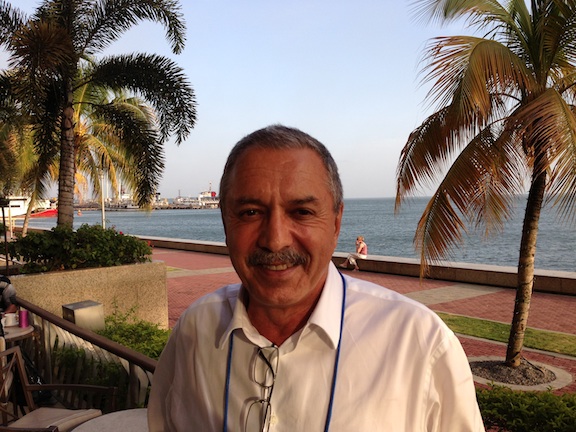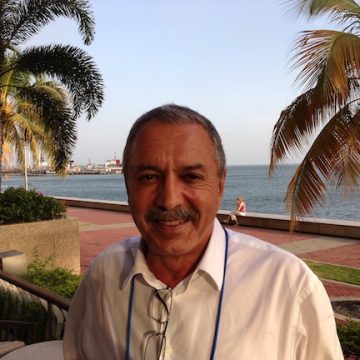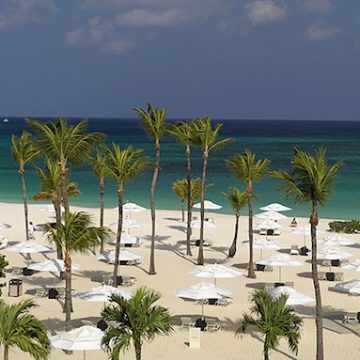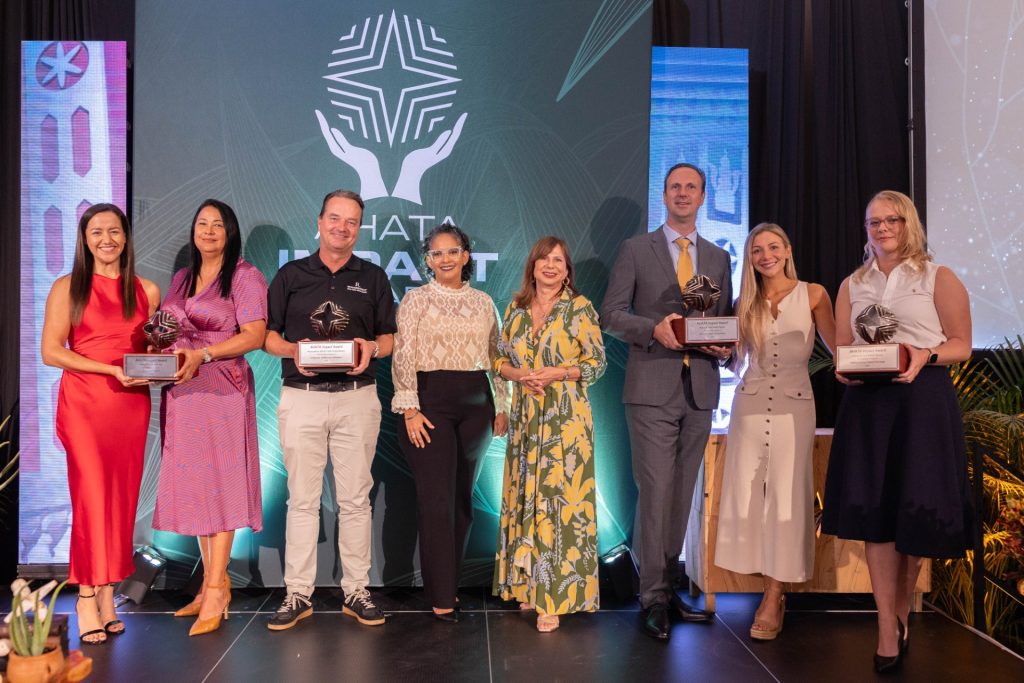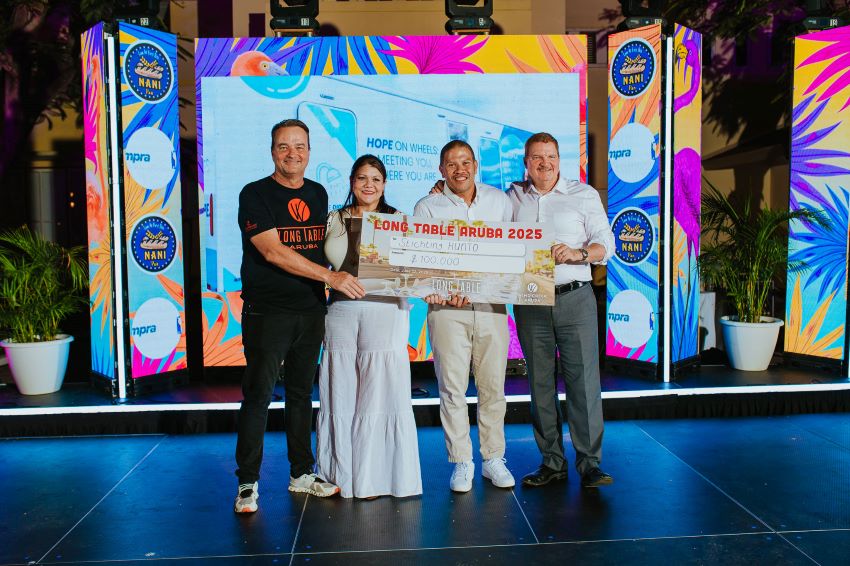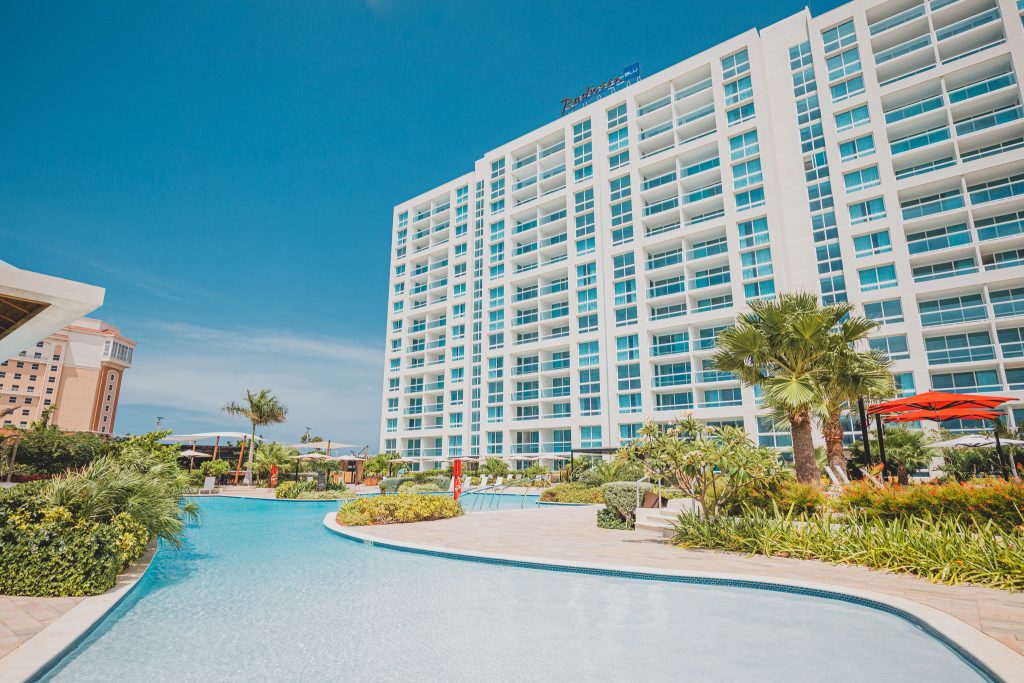Couresy of: Caribbean Journal
By Alexander Britell
This week’s Caribbean Sustainable Tourism Conference has focused on how the region’s leading does business. But what does sustainability mean for hotels in a practical sense? Do travelers take sustainability into consideration when they look for a hotel today? To learn more, Caribbean Journal caught up with Ewald Biemans, the founder and managing director of the Green Globe-certified Bucuti & Tara Beach Resorts in Aruba, one of the region’s leading hotels for green practices. CJ talked to Biemans about his definition of sustainability, what his property has done to be more sustainable, and how travelers’ desires are changing with the times.
How would you define sustainable tourism?
It’s really that your patrimony has to be preserved in all aspects — your culture, your land, your ocean, your reefs, your nature. It’s a total concept. It’s not just saving energy or planting trees. It is much, much more than that.
How prevalent would you say sustainable tourism is in the Caribbean right now?
There’s a lot of work to be done in the Caribbean. Tourism itself is a bit of a destructive force — people go diving, they damage the coral, people rent quad racers and go cross country and create erosion. The local people are sometimes not very well aware of the damage they can do by cutting down trees. So there’s a lot of work to be done, but I think a lot of islands have already kind of seen the light, or are learning rather quickly.
How much is sustainable tourism a private sector issue as opposed to a government issue?
Both – equally. In Aruba, the private sector has done much more for more years than the government. But at this point, we feel that the public sector has joined the efforts, and we are now seeing major progress. In a couple of years, we’ll be carbon neutral in Aruba. All of our energy is going to be produced by renewable resources — solar, deep ocean and wind. 10 years ago, that was unthinkable, because 10 years ago the same bureaucrats told you “no, you can’t put that windmill up because you’re contaminating my grid.” So things are changing.
What do you do at your property to make it sustainable?
One, our staff members get involved. That is — education. They bring home the technology they learn, they take the new concepts and implement them at home. Number two, our customers, when they stay at a resort that is environmentally well run, with all the environmental safeguards in place, they feel that they’re diminishing their [environmental] footprint. Everybody considers a vacation a God-given right, but people still feel guilty, and when they stay at an energy efficient, well-run, environmentally conscious place, they feel a bit ameliorated.
“It’s a total concept. It’s not just saving energy or planting trees”
The reality is, when most people think of the footprint they leave at home, with two cars, air conditioning, and a commute to work, the reality is that if they fly down and live in a room that is energy efficient, insulated and has consumption monitors, I think their footprint is actually diminished by taking a vacation. What a good [sustainability] programme also does is it creates pride in the community, it employs people, it uplifts the arts and culture, because now they’re part of the product. And people enjoy going to a place that is authentic, where the smile are genuine rather than going to Las Vegas, where everything is plastic and everything is artificial. These are some of the benefits of a good environmental programme or sustainable programme.
Do you see travelers actively considering these factors when they choose a property over another?
Definitely. There are people who go for beach vacations. But nowadays, people would rather travel for an experience, not just to go to the beach and sit there and get a pina colada in the afternoon. That’s part of it. But they want to experience a little bit more, in substance. It’s culture, food, education. We’re about to start a volun-tourism initiative, where people come on a vacation, and while on vacation, do volunteer work. We don’t have the concept completely ready yet, but it’s a fantastic concept. People want to do something, to create something, to give something back more and more, rather than just go to the beach with sun, sand and sea and go home with the pina colada picture.
How should Caribbean travel change in this regard?
I think the change may be more preservation. Let’s try to conserve our culture, our heritage, rather than become a plastic nothing. Let’s make it so when they come to a country, they experience the genuineness of the people, the culture, the food, the atmosphere. They could just stay at home or go to Miami Beach and have the same thing if we’re not careful.
Do you think that will happen to the Caribbean?
There’s a danger. And it has happened to some destinations, to a certain extent. It’s a danger that it could happen, because people try to buy what they’re accustomed to. You will see an island that slowly develops a McDonald’s and a Wendy’s and a Pizza Hut. Why? Because people go and want to have their own food. The danger is that while they build all of these branded things, the little guys, the mom-and-pops, the authentic, disappear. That’s what we have to watch. If we could keep our culture and our flavour, I think we’re in good shape. Some islands have a problem, and I think they realize it. In Aruba, one thing we conserve is the friendliness, the safety, and of course the preservation of the natural resources. If you don’t watch it, it’s gone.

